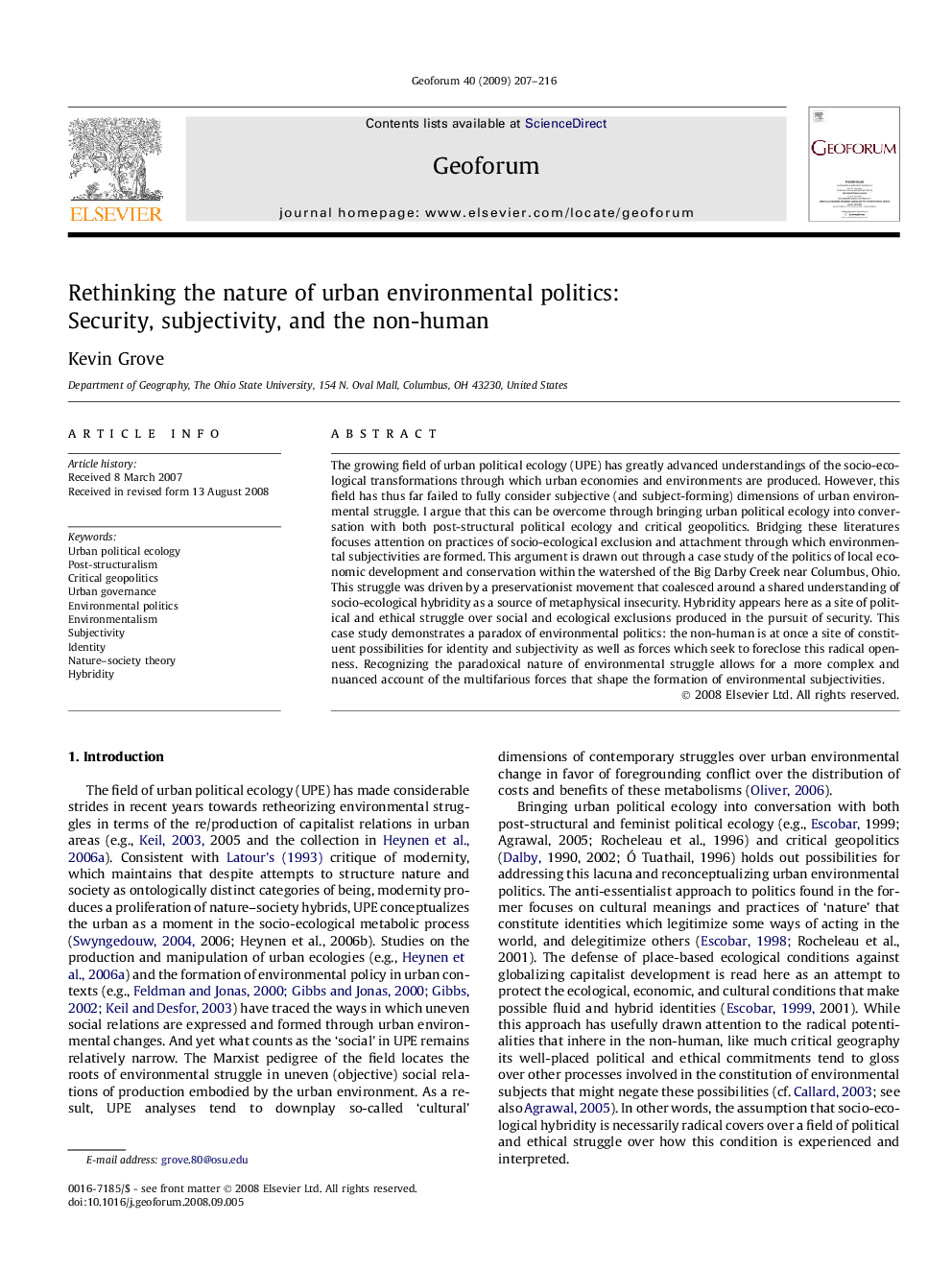| Article ID | Journal | Published Year | Pages | File Type |
|---|---|---|---|---|
| 5074728 | Geoforum | 2009 | 10 Pages |
Abstract
The growing field of urban political ecology (UPE) has greatly advanced understandings of the socio-ecological transformations through which urban economies and environments are produced. However, this field has thus far failed to fully consider subjective (and subject-forming) dimensions of urban environmental struggle. I argue that this can be overcome through bringing urban political ecology into conversation with both post-structural political ecology and critical geopolitics. Bridging these literatures focuses attention on practices of socio-ecological exclusion and attachment through which environmental subjectivities are formed. This argument is drawn out through a case study of the politics of local economic development and conservation within the watershed of the Big Darby Creek near Columbus, Ohio. This struggle was driven by a preservationist movement that coalesced around a shared understanding of socio-ecological hybridity as a source of metaphysical insecurity. Hybridity appears here as a site of political and ethical struggle over social and ecological exclusions produced in the pursuit of security. This case study demonstrates a paradox of environmental politics: the non-human is at once a site of constituent possibilities for identity and subjectivity as well as forces which seek to foreclose this radical openness. Recognizing the paradoxical nature of environmental struggle allows for a more complex and nuanced account of the multifarious forces that shape the formation of environmental subjectivities.
Keywords
Related Topics
Social Sciences and Humanities
Economics, Econometrics and Finance
Economics and Econometrics
Authors
Kevin Grove,
